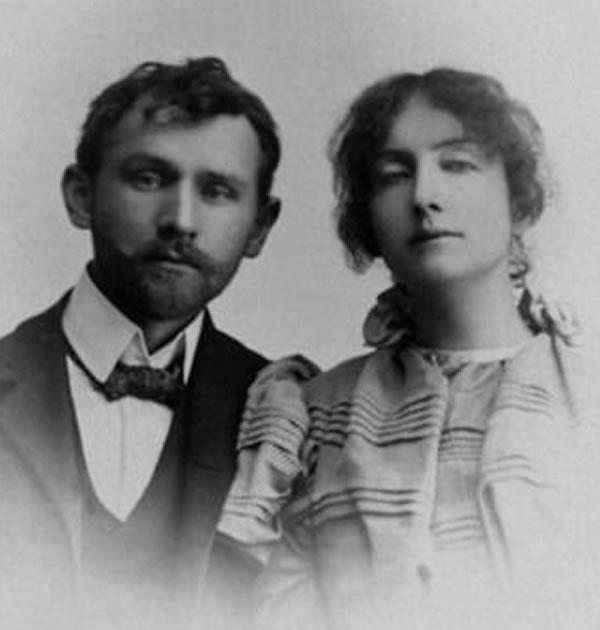... in their ways of thinking and viewing the world they went so well together, in the most wonderful way, and through this was a real great power, and were just as much loved as feared, due to their spiritual superiority.
- 1/1
Stanislaw Przybyszewski og Dagny Juel Przybyszewska, fotografert i 1895
There was always a red oil lamp burning in Luisenstrasse, all night long. It hang suspended from a steel wire in the ceiling, and there was a hood of red paper over the glass [...]. He was the Polish man who spoke not a word Polish, who wrote daring German poems and suffered from hallusinations. They called him Stachu. She was Norwegian, very slender, with the curves of a Madonna of Trecento, with a laughter that drove men mad. Her name was Ducha and she drank absinth by the liter without getting drunk. The furnishings were simple and spartanious. – A table and two chairs in the middle of the room, against the wall, behind a screen, both beds. By the wall also a small piano, a strange instrument. It could be closed off, so that it did not disturb anyone in the house, even if Stachu pounded away on it with both hands. [...] This closed off piano was in a way the soul of this room.
Both Stachu and Ducha held all sorts of order in the highest contempt. Thoughts of tomorrow were regarded as ridiculously unnecessary. They never had any money; in spring, Ducha pawned her winter dresses and only got them back in the autumn, when she pawned her summer dresses. There were always pawn tickets falling out of her bag, whenever she came to visit me, which was of course no coincidence, and with the charm of a child she would exclaim – Is not that right, Mrs. Isi, you will give me 20 Mark before I leave?!
